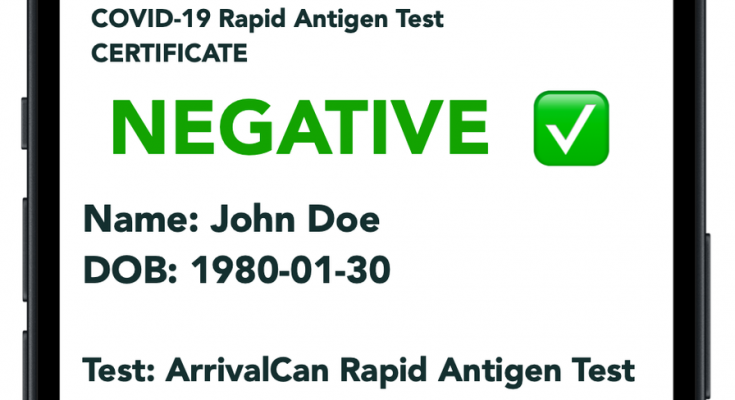In spite of continued criticism mounting over the mandatory online data-entry system for travellers entering the country, Ottawa is still making plans to expand the capabilities of its ArriveCAN app.
An update on its plans to improve was given by Transport Canada earlier this week to improve the app, including adding an optional, online advance CBSA declaration for people going to Calgary, Edmonton, Winnipeg, Billy Bishop Toronto City, Ottawa, Québec City and Halifax international airports.
Transport Canada reported saying that according to the feature of this plan, which is currently only available to those passing through Toronto Pearson, Vancouver or Montreal-Trudeau international airports. was to cut the amount of time by a third for travellers who spend at a Canada Border Services Agency kiosk.
“With the thousands of travellers arriving in Vancouver, Toronto and Montreal airports each day, the use of the optional advance CBSA declaration has the potential to save hours in wait time,” according to Transport Canada’s release.
Although after easing public health restrictions on people coming to Canada, and fully vaccinated Canadians and permanent residents crossing the border were no longer required to quarantine upon their return, Canada still wanted a way to account for people’s vaccination statuses and COVID-19 results from a recent test. The app allowed travellers to take a photo or upload a snapshot of their vaccine documentation into the app before going through customs.
The app has not been without its issues. Last month, Public Safety Canada acknowledged a glitch that incorrectly informed some travellers to quarantine when in fact they didn’t have to.
But travellers who fail to provide the required information won’t be denied entry but may face a 14-day quarantine, the need to take a COVID-19 test on arrival and a follow-up test eight days later.
They may also be fined $5,000 and face “additional delays at the border for public health questioning,” according to Canada’s main ArriveCAN information page.
For people who can’t access the app or website because of cognitive or physical impairments, they may provide the information verbally at the border or by completing a paper form.
The exemption also applies to people who can’t fill out the information online because of a natural disaster, censorship, lack of access to the internet or an ArriveCAN outage.
#ArriveCANapp





